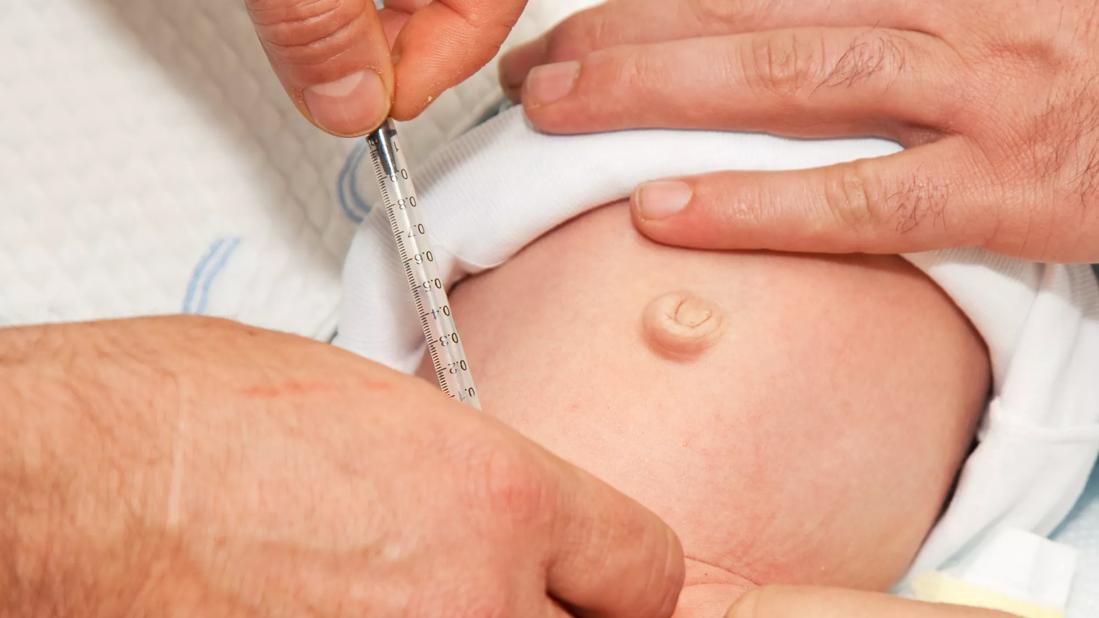Parents' guide to the medical aspects

Circumcision is a very personal decision for parents, which can involve religious or cultural considerations. Medical experts continue to debate the health benefits of circumcision versus the risks.
Advertisement
Cleveland Clinic is a non-profit academic medical center. Advertising on our site helps support our mission. We do not endorse non-Cleveland Clinic products or services. Policy
If you are having a baby boy and have questions, it’s important to talk to your pediatrician. Pediatric urologist Jeffrey Donohoe, MD, answers five questions he hears most often from parents about this practice.
Although cultural and religious reasons make it relatively common in the U.S., circumcision (surgical removal of the penis foreskin) is less common elsewhere in the world. It remains a personal decision for parents.
When parents ask his opinion, Dr. Donohoe says, “I advise parents undecided about whether or not to have their son circumcised to consider the social dynamics of the family — and what is typical among men in the family.”
More than sixty years ago, the American Academy of Pediatrics (AAP) had recommended circumcision to reduce the risk of penile cancer, but more recent evidence finds no link between circumcision and cancer. “Keeping your son’s penis clean can reduce his risk of penile cancer, either way,” Dr. Donohoe says.
Currently, the AAP says circumcision helps protect against sexually transmitted diseases (STDs) later in life. Dr. Donohoe doesn’t disagree, but he says that using condoms is the best protection against STDs.
If your son isn’t circumcised, you should not push the skin back over the head of the penis, says Dr. Donohoe. Just keep the area clean.
Advertisement
Leaving your son’s uncircumcised penis alone is best, as naturally occurring skin adhesions will stretch out over time when your son gets erections while sleeping. You should see 30 to 50 percent of the glans penis (the bulbous structure at the end of the penis) by age 3, and most of it by age 5, he says.
Complications are rare for boys who are not circumcised. But sometimes secretions under the foreskin harden and irritate the skin, causing inflammation or, rarely, an infection. Good hygiene can prevent this, Dr. Donohoe says.
It’s natural to wonder if your son’s circumcision was done correctly, and to sometimes question whether it needs to be redone, Dr. Donohoe says.
If your son seems to have too much skin around the head of the penis or if skin is sticking to it, your first step is to get a pediatric urologist to evaluate it.
Sometimes, the skin forms adhesions (fibrous bands between tissues) to the glans penis. In this case, your son will need more surgery, Dr. Donohoe says. To help keep this from happening, push the skin back far enough to expose the head of the penis and the groove around the head of the penis when you bathe or change your son’s diaper, he says.
If your son’s penis is inflamed, you might wonder if he could have a urinary tract infection (UTI). However, circumcision does not cause UTIs for most boys, says Dr. Donohoe.
“What many parents think is an infection is actually just red and irritated foreskin that generally improves when you use a barrier cream,” he says.
If the irritation persists, look for these signs of infection:
If your son has one or more of these symptoms, talk with your pediatrician.
It’s important to go to your pediatrician with questions about circumcision or other concerns. It will help you to learn about what your child will go through at each stage of development.
Advertisement
Learn more about our editorial process.
Advertisement

Start weaning your toddler off daytime pacifier use by 12 months old to help prevent dental issues and speech delays

Adding extra formula, cereal or medications to your baby’s bottle is a dangerous and misguided practice

Teaching your baby to sign may help ease frustrations before they can talk, but it’s not a must-do

Babies can get congested easily, but you can calm their cough by keeping them hydrated, using nasal drops and running a humidifier

Gripe water isn’t regulated by the FDA, and research doesn’t support its use

Preschool age is typically between 3 and 5 — but readiness may matter more

It’s not just about people you don’t know — it’s about behaviors that don’t feel right.

Your child may be ready if they’ve outgrown their crib or keep escaping it, or if they seem mature enough to make the switch

Start having sex about 72 hours before ovulation, then at least every other day during your fertile window

Attachment theory suggests that your earliest relationships shape connections throughout your life

It isn’t a recognized mental health disorder, but research shows that problematic social media use can negatively affect your mental health, self-esteem and sleep